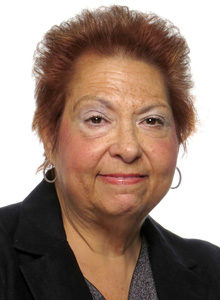The comments below are those of Joyce Wale, LCSW and do not reflect the opinions of United Healthcare or others.
The New York State Office of Mental Health should be commended for their leadership and insight into the need for a comprehensive behavioral health system that is equipped to respond to psychiatric crises for all New York state residents. The NY State Governor and Legislature should also be recognized and thanked for their commitment of adequate funds allowing for the enhancement of the existing crisis intervention resources.

Existing psychiatric or substance abuse crisis response services include interventions such as toll-free hotlines, county based mobile crisis services, crisis residences that allow for prolonged stays, suicide prevention programs, psychiatric evaluations at designated emergency rooms, specialized Community Psychiatric Emergency Programs, and inpatient hospitalizations on psychiatric units in general hospitals or at hospitals designated specifically for psychiatric services. The New York Offices of Mental Health (OMH) and Addiction Services and Supports (OASAS) are leading a statewide expansion of crisis services to include the development of crisis stabilization centers. There will be two types of crisis stabilizations centers developed, Supportive Crisis Stabilization Centers (SCSCs) and Intensive Crisis Stabilization Centers (ICSCs). Both types of centers will offer a safe and supervised environment that is available 24 hours a day, 7 days a week where individuals can receive support for up to 24 hours while experiencing an acute mental health or substance abuse crisis. These resources will create the opportunity for rapid intervention while avoiding the need for more intensive levels of treatment.
While NY State policy leaders and legislative decision makers are recognizing the need for prevention, immediate intervention, and follow-up, I must ask: has the concept and utilization of crisis intervention and stabilization been understood and accepted by multidiscipline behavioral health teams?
We live in a risk aversive society where decisions are often influenced by the potential outcomes if a client in crisis is not evaluated in an emergency room. Often, families engage law enforcement as their loved one has refused all services and so they can feel safe in the community progress has been made and continues to expand to include mental health professionals in law enforcement activities.
In order to better develop the resources and improve our outcomes, we must ask:
Is there a scientific way to know when an individual is beginning to show signs of distress? If so, can we identify the optimal time to intervene? How can we use people with lived experience to quickly engage individuals in crisis at an early stage to facilitate appropriate intervention? How can we better educate and support families so they can more effectively utilize the crisis system, so it becomes a form of treatment leading to recovery and not simply a respite for the individual and family? Are medical students and psychiatric residents learning to understand alternatives to hospitalization and effectively access crisis intervention services?
Now is the time to find answers and solutions to those questions to facilitate improvements in our provision of care while the State expands crisis services. Regardless of an individual’s mental wellness or distress, everyone, including myself, is affected by the efficacy and effectiveness of our current behavioral health system. I do not need to experience a psychiatric crisis to understand and value the importance of these services.
There has never been a better time to develop a robust transformation from the existing system to one that offers a simple yet effective array of crisis services that are easy to access. To make this shift, it is crucial for us to start with our training programs to improve our understanding the appropriate utilization of crisis services as an alternative to emergency room services. We need to utilize our scientific resources and knowledge to better understand effective timing and interventions. We need a better understanding of the legal resources available such as Kendra’s Law. Kendra’s law provides for court ordered services based on clinical criteria for need. This insures ensure adequate and effective care for individuals refusing services. Have other states developed more effective services and strategies, what can we learn from them?
It is inevitable that reflection on this subject will lead to more questions than solutions but maybe, we don’t need all the answers, maybe we simply need one or two solutions. The development of crisis stabilization centers may bring us one step closer to that. The behavioral health community is full of thoughtful and compassionate problem solvers, who better to include in brainstorming and development of solutions than those individuals?
Joyce Wale began her career in high school, where she started her school’s Social Action Committee and volunteering at health and human services organizations. Her dedication led her to obtain both a bachelor and master’s degree in Social Work, with honors. Ms. Wale worked in Child and Adolescent Behavioral Health programs at both the direct clinical services provision as well as administration in clinic, residential and day treatment services. With an extensive clinical and administrative program background, she went on to direct a National Institute of Mental Health State Planning grant in New Jersey. Moving up quickly to take over the leadership of the State’s Child and Adolescent Mental Health Service’s while continuing to serve as the Project Manager/ Principal investigator of the multi-year planning grant.
The lack of direct clinical work led Ms. Wale to establish a small clinical private practice In addition Ms. Wale taught at a university level and served in various capacities on the Board of Directors for the NJ State Chapter of the Mental Health Association. She served on a variety of legislative and NY State Committees while leading the New York City Health & Hospitals Corporate Behavioral Health Services. Under her leadership was the implementation of AOT, the development of numerous services across the city as well as establishing roles for peer leadership and published multiple articles on service delivery. She is a fellow with the NY Academy of Medicine and the Vice President of the Board of Directors of the Institute of Behavioral Healthcare Improvement.
Currently Ms. Wale is the Northeast Reginal Executive Director for Behavioral Health at United Healthcare Community. In this role she has oversight of the Insurance Companies’ Health and Recovery Plan, Mainstream and Essential Health Plan Behavioral Health services. Additionally, she oversees the public sector Behavior Health services in the northeast. She is passionate about including individuals with lived experience in service delivery and administration. She may be reached at joyce.wale@uhc.com.




